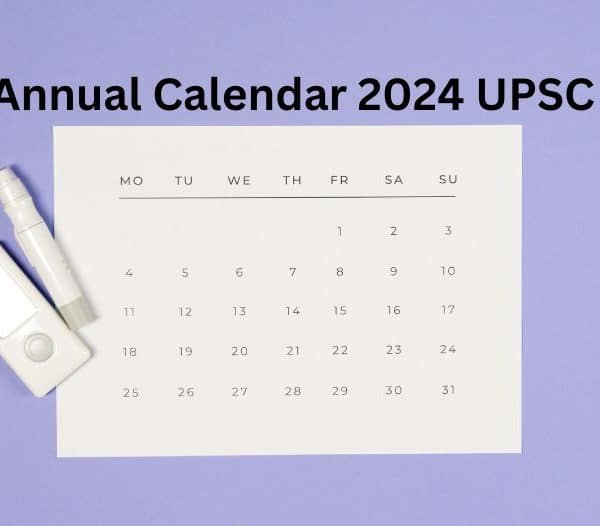Different Types of Civil Services: How Many Types of Civil Services are There in India?

You will find that shine and pride in people’s eyes when they talk about a relationship with someone who has cleared civil services. After all, it is a thing to be proud of when you have to implement the hardships of this huge competition. However, before running behind power, do you know anything about how many types of civil services there are in India?
This term was introduced during British Raj by Warren Hasting Majorly, on October 1st, 1926. During that time, it was majorly differentiated in covenanted and uncovenanted. However, now the system is much more evolved and developed. You can look into different types of civil services present so you can prepare for exams and the service that can match your skillset accordingly.
There are Majorly Five Types of Civil Services –
- Indian Administrative Services
- Indian Foreign Services
- Indian Police Services
- Indian Revenue Services
- Indian Railway Traffic Services
Indian Administrative Services
These civil services hold a very high stand in the matters of Union as well as State Government. These services involve the vital strategic positions and also represent Union, State or any PSU at international organisations like the International Monetary Fund (IMF) and World Trade Organisation (WTO).
Indian Foreign Services
After selection under the civil service, the newcomers have to undergo a concise training programme that gives them a detailed knowledge of learning diplomatic qualities and skills. The job of officers under the Indian Foreign Services comprises representing India’s interests on international matters domestically at home or even abroad.
Indian Police Services
The officers under this civil service also have to go through a preliminary training period. The Indian Police Services involves the matters of the public peace, terrorism control, VIP security, smuggling matters, drug trafficking, investigation, economic offence and other issues related.
Indian Revenue Services
The Indian Revenue services involve the functions of collection of revenue, development and allocation of revenue along with security and governance collected on a macro level. The officer under this service administers the processes of taxes, formulation and implementation of tax and revenue policies along with investigation on revenue matters.
Indian Railway Traffic Services
Once selected under this civil service, the candidates undergo a Railway Foundation Course along with specialised training to serve the Indian railways at key managerial positions. The officers under this service manage the travellers’ transportation along with the production and sale of goods and output through rail transportation.
Civil Services Categories in India
To answer your question on what types of jobs are civil services? You should be aware that there are around 23 different UPSC posts and to get into one, you must clear the civil services examination after which you can apply for positions under various civil services.
To get into the field of Civil services, every year, millions of students prepare and give exams so that they can get a job in one of the major five civil services mentioned above. However, only a few hundred are selected for the same.
Then comes the category which involves clerical personnel, manual personnel, or in simple terms, they are non-gazetted officers. These jobs won’t have that higher pay or power like the gazetted officers. The government provides a lot of facilities and incentives for them as they are also essential for the smooth functioning of our system.
Also Read : IAS vs IPS vs IFS: Selection, Power, Salary Difference among Different UPSC Posts
Posts are as Follows –
– Indian Trade Services (ITS)
– Railway Protection Services (RPF)
– Indian Postal Services (IPoS)
– Indian Defense Estates Services (IDES)
– Indian Foreign Services (IFS)
– Indian Audit and Account Service (IAAS)
– Indian Corporate Law Services (ICLS)
– Indian Railway Accounts Services (IRAS)
– Indian Railway Traffic Services (IRTS)
– Indian Ordnance Factories Service (IOFS)
– Indian Civil Accounts Services (ICAS)
– Indian Communication Finance Services (ICFS)
– Indian Revenue Trade Services (IRS)
– Indian Railway Personnel Service (IRPS)
– Indian Information Service (IIS)
So, now it’s clear you have a variety of options and types of civil services jobs which can be achieved only after clearing civil services exams.
What are the Different Types of Civil Services for Women?
We all get inspired when we hear some great stories of officers like Kiran Bedi, Smita Sabharwal, Isha Pant, Nirupama Rao, Meera Shankar, etc. These brave officers not only made our country proud but also inspired millions of other women to come out of their shell.
However, to increase the representation of women in civil services, many policies and incentives are given by the government, which also includes waiving off admission fees of the exam. Once they get a government job, they also get maternity leave, special offers and incentives, so they don’t quit under family or societal pressure if any.
There is a lot of scope under UPSC jobs as it is not only reputed but also well paid and highly beneficial incentive-wise, but if one isn’t able to clear the exam, then they should also give a try in SSC jobs as they have a scope too.
Furthermore, there isn’t any gender discrimination in the civil services field; it’s just that women are encouraged to participate more to ensure a balance in the future in the representation of society who work on the smooth functioning of all.
Power Speaks
It is true that with the help of power and some influence, you can always get things done but to get into that top position; you have to pass the civil services examination. This examination is no cakewalk as it will require that commitment and dedication from you, which is at least six to seven hours of the qualitative amount of study every day.
You will need to be thoroughly prepared on the general knowledge, political, economics, and historical issues, especially the current affairs on which you have to be updated daily. The selection process is divided into three major steps – prelims, mains, and an interview.
Many students clear it till six attempts while some also clear it just within one shot after graduation; hence it depends on you and your hard work.
The Bottom Line
So keep trying and give your best because even if the qualification rate is only 0.1%, you can still achieve the milestone with the help of proper planning and passion for serving your country. Alongside, we here at UPSC pathshala will always keep you updated through our medium of blogs regarding all the Civil services news and updates. Be connected with us, to find all the important information and updates regarding the civil services in India.
Also Read : IAS Seniority List: Know All about the Civil Services Profession






